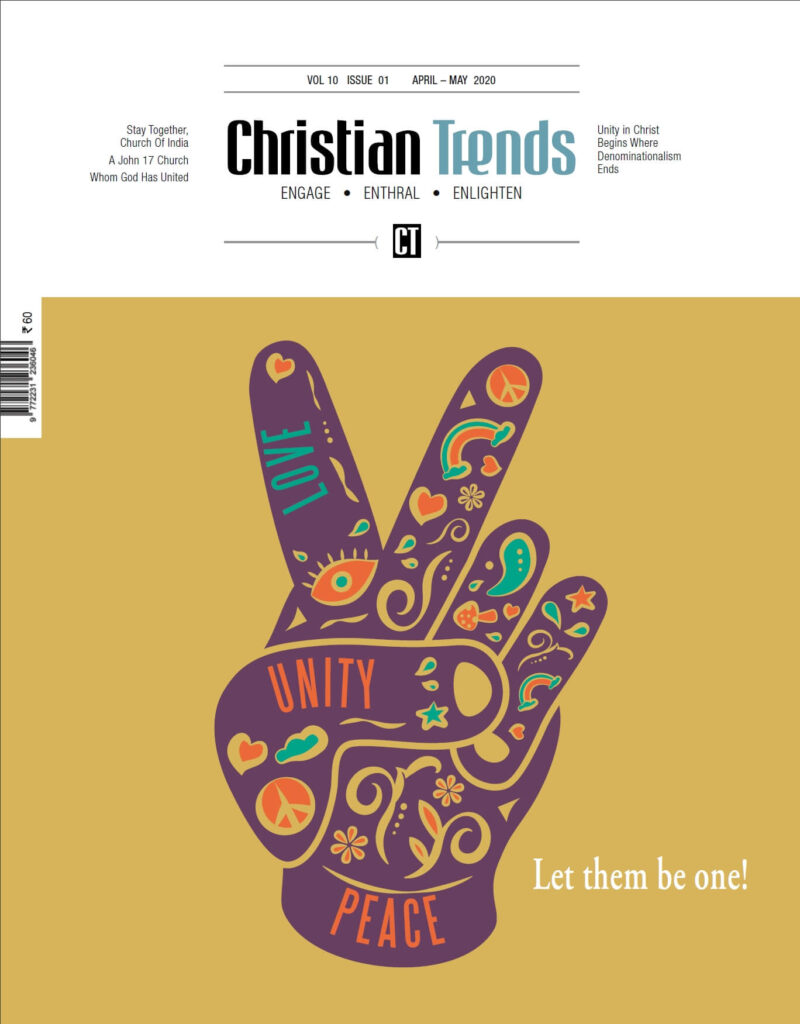“God is faithful, who has called you into fellowship with his Son, Jesus Christ our Lord” (1 Cor 1:9). As Paul began to write this all-important letter, the theme that he wanted the Corinthian church to emulate was captured in this particular verse.
Corinth was a bustling city that boasted of its ports, trade and even could be termed as the “onsite” location where many would like to be deputed in today’s world. The Isthmian games that consisted of running, wrestling, boxing, javelin, discus throw, long jump, chariot racing and even music were held here. With many pagan revelries centred around the Temple of Aphrodite, there was a new revolutionary movement that started in the house of Aquilla and Priscilla (Acts 18). With Paul joining them, the church at Corinth was established. This counter-cultural movement spread and many became the members of the church. In a culture that magnified humans as demigods, folks in the church took the sides of the giants of the gospel who ministered to them. Some took the side of St Paul, others took the side of Apollos, some became a part of the Peter gang (possibly those with extreme Jewish roots) — “One of you says, “I follow Paul”; another, “I follow Apollos”; another, “I follow Cephas”; still another, “I follow Christ” (1 Cor 1:12).
We are all members of one body and we should function as members of one another and ultimately grow unto the maturity of Christ when we use the spiritual gifts. It should edify one another and not break or divide.
Well, the good news that we can think of from this verse is none of them tried to split the church and start a new denomination. As Paul wrote this letter, factions were there in the gathering but no one started a new “Paul fellowship” or “Apollos fellowship”. The factions were evident as they gathered. Thus, Paul had to address the factionalism in the very first part of the letter. He could have started with the other main issues that confronted them. Yet he would have chosen to write on unity the first, as everything else would then fall in place if they gave importance to this.
As we glance at our modern-day church, we see a divided body. Many denominations came into being as a result of racial divide, doctrinal divide, leadership divide, linguistic divide, so on and so forth. How do we address this? How do we reconcile to the Lord who reconciled it all in the cross?
We need strong spiritual leaders like St Paul who focus on God’s word and discern the plan of God for the church and the generations. Christian life is being united with the life of our Lord Jesus Christ. It’s a life of intense sharing and partnership with our Lord Jesus by His Spirit. As Paul looked into the divisions of the Corinth church, he could only be encouraged by the faithfulness of God. The church with all its divisions would undoubtedly taste the faithfulness of God. His “Hesed” (faithfulness) is what we can rely on when we feel disorganised in a way from the eternal purpose. He will fulfil what He has purposed. St Paul talks in detail in this epistle on how the church had divisions even in the sacraments and gatherings that ideally should have united the body.
The Communion Meal was the new covenant meal similar to the Manna that united the whole of Israel. Manna came down from heavens and all who were baptized into Moses had the privilege to eat from that meal, irrespective of their differences in the tribe they were born or leaders they had.
“They were all baptized into Moses in the cloud and in the sea. They all ate the same
spiritual food” (1 Cor 10:2–3).
Now as the church at Corinth gathered for their communion meal, the rich and those who were from higher social strata ate the meal and had fellowship with one another first. The slaves and those of the lesser rank followed later.
“For when you are eating, some of you go ahead with your own private suppers. As a result, one person remains hungry and another gets drunk. Don’t you have homes to eat and drink in? Or do you despise the church of God by humiliating those who have nothing? What shall I say to you? Shall I praise you? Certainly not in this matter”
(1 Cor 11:21–22).
This is the Lord’s table, a covenant meal that unites us all unto Him. This should be the thought when we partake of the elements. The communion meal unites us as we eat from the one loaf. This is certainly not the place where we behave divisively and selfishly.
Fellowship with Christ and intimacy with Him should result in a greater cohesion with one another in the body of Christ. We who are intimate with Christ are also intimate with one another to perfect one another in Christ.
“Is not the cup of thanksgiving for which we give thanks a participation in the blood of Christ? And is not the bread that we break a participation in the body of Christ? Because there is one loaf, we, who are many, are one body, for we all share the one loaf” (1 Cor 10:16–17).
We are all members of one body and we should function as members of one another and ultimately grow unto the maturity of Christ when we use the spiritual gifts. It should edify one another and not break or divide.
“So it is with you. Since you are eager for gifts of the Spirit, try to excel in those that build up the church” (1 Cor 14:12).
When the church gathers together, individuals should no longer be mindful of the family, traditions or backgrounds that they are from. We leave that all and come to the table that unites. The bread unites us irrespective of every difference. It’s the Lord’s table and He is the host as we partake of the meal together. The bread shows His body that was given for us and when we partake of it, we unite and are reconciled to the plan and purposes of God. No more we are divided but we are one as—“There is one body and one Spirit, just as you were called to one hope when you were called; one Lord, one faith, one baptism; one God and Father of all, who is over all and through all and in all” (Ephesians 4:4–6).Hence, we should, irrespective of every difference in caste, creed, ethnicity or even denomination, “make every effort to keep the unity of the Spirit through the bond of peace” (Ephesians 4:3).
Fellowship with Christ and intimacy with Him should result in a greater cohesion with one another in the body of Christ. We who are intimate with Christ are also intimate with one another to perfect one another in Christ. The proper revelation of the communion meal and operation of spiritual gifts should enable us to come out of every denominational divide and work towards the edification and building up of the body of Christ and not the other way around.







